7 Benefits Of Turkey Tail Mushrooms And Possible Side Effects
Incorporate this mushroom variety into your diet to boost your immunity and well-being.
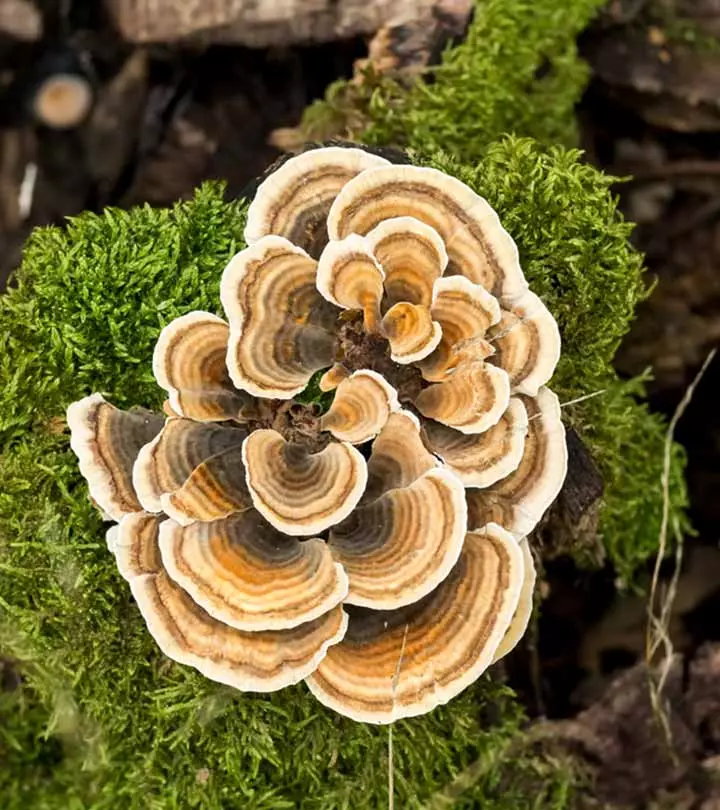
Image: Shutterstock
The benefits of turkey tail mushrooms are many. Turkey tail mushrooms have a gentle, earthy flavor and have been used in traditional medicine for hundreds of years. Their most prominent use has been in Chinese herbal medicine. Like the other varieties of mushrooms, such as shitake, button, cremini, and oyster, these edible fungi are also widely used in culinary preparations worldwide. Not only do turkey tail mushrooms taste great, but they also add a nice texture and mouthfeel to your food. More importantly, they also offer critical health benefits. In this article, we discuss the turkey tail mushroom in detail, its various advantages, ways of including it in your diet, and its potential side effects. Keep reading.

 Know Your Ingredient: Turkey Tail Mushroom
Know Your Ingredient: Turkey Tail MushroomWhat Is It?
A disc-shaped, velvety fungus that resembles a turkey’s tail and is often found on rotting tree barks or fallen logs.
What Are Its Benefits?
It helps improve gut health, boosts immunity, and reduces inflammation.
Who Can Consume It?
Anybody can consume this except people with a mushroom allergy and those on diabetes or anticancer medications.
How Often?
You can eat up to 2 grams daily.
Caution
Overconsumption may cause nausea, diarrhea, heartburn, and vomiting.
In This Article
What Is A Turkey Tail Mushroom?
Turkey tail is a medicinal mushroom that is otherwise known as Trametes versicolor, Coriolus versicolor, or Polyporus versicolor. It is generally found growing on tree trunks. It has a disk-like appearance and a color similar to that of a turkey’s tail.
Turkey tail mushrooms are widely used in traditional, natural medicine to treat several diseases and infections. It is only recently that researchers have started investigating some of its more potent health benefits (1).
 Trivia
TriviaFind out more about the health benefits of turkey tail mushrooms in the upcoming section.
Key Takeaways
- Turkey tail mushrooms are rich in antioxidants and help reduce the risk of cancer and cardiovascular diseases.
- Consuming them has several benefits, like boosting immunity, improving your gut health, and athletic performance.
- You may experience nauseai An uncomfortable feeling in the stomach which causes an urge to vomit but does not lead to vomiting. , heartburn, and diarrhea if you are allergic to mushrooms.
Potential Health Benefits Of Turkey Tail Mushrooms
Here is a more in-depth look at the various potential benefits of turkey tail mushrooms:
1. Are Rich In Antioxidants

Turkey tail mushrooms are rich in antioxidants like phenols and flavonoids that help reduce inflammation and improve your immune system (2). They also contain quercetin, an antioxidant known to improve mental health, reduce the risk of infections, and improve physical performance (3). Studies suggest that consuming antioxidant-rich foods may help reduce the risk of cancer and cardiovascular disease (4).
2. Help Boost Immunity
Krestin (PSK) and polysaccharide peptides (PSP) are the immunity boosters found in these mushrooms. PSPs help activate immunity-boosting cells and PSK is known to possess immunomodulatoryi A group of drugs that can modulate the immune system's response by increasing or decreasing the production of antibodies. properties (5).
Studies suggest that PSPs might promote the growth of monocytes (a type of white blood cell). Monocytes help fight harmful infections and improve immunity (6).
Turkey tail mushrooms may also help improve immune function in people with specific cancers and tumors. A study revealed that the PSK in turkey tail mushrooms may inhibit and suppress the growth of colon cancer cells (7). However, further research is required to prove its effectiveness in this regard.
In another mice study, regular treatment with turkey tail extracts was found to inhibit tumor growth and improve the chances of survival (8). Further studies are needed to test the mushroom’s effectiveness on humans.
Also, mushrooms generally have a special compound called beta-glucans. These compounds have anti-inflammatory properties and stimulate the immune response in the host against other fungal, viral, bacterial, and parasitic infections (9).
3. May Improve The Efficacy Of Certain Cancer Treatments

The PSK and PSP in turkey tail mushrooms, when supplemented with traditional cancer treatments, may help improve their efficacy (10), (11), (12).
In a study, patients with breast, colorectal, or gastric cancers experienced a 9% reduction in 5-year mortality when treated with turkey tail mushroom extracts combined with traditional treatment. Mortality reduction was higher in those also treated with turkey tail mushroom extracts than those treated with stand-alone chemotherapy (10).
In another study on gastric cancer patients, those treated with chemotherapy along with PSKs lived longer than those treated with chemotherapy alone (13).
Orally administered turkey tail mushroom extracts might help improve immune response among women with breast cancer. In a study, women who were given 6 to 9 grams of turkey tail extracts along with radiation therapy showed an increase in lymphocytei A type of white blood cell which helps the body’s immune system fight against foreign viruses, bacteria, and even cancer cells. production (12).
4. May Improve Gut Health
Eating dried or fermented turkey tail mushrooms might improve your digestive health and promote the growth of good bacteria (1). Studies suggest that regularly consuming PSP extracts from turkey tail mushrooms may help modulate the composition of the human intestinal microbiome (14).
Turkey tail mushroom extracts might also modify your gut’s microbiome to promote Prebioticsi Non-digestible dietary fibers or substances that provide nourishment for the good bacteria (probiotics) that live in the digestive tract. . This, in turn, may help reduce the risk of staph infection and gastroenteritisi A condition in which there is inflammation in the lining of the stomach and intestine which causes diarrhea and vomiting. . It might also help decrease your gut pH levels and increase the concentration of organic acids that improve gut health (15).
5. May Help Combat Human Papillomavirus

Turkey mushroom extracts may help combat STDs like HPV. In a study, applying a gel containing turkey mushroom extracts was found to heal vaginal lesionsi An abnormal skin change on tissues inside or outside the body, which may or may not be cancerous. caused by HPV (16).
Another study suggests that combining turkey mushroom extracts with extracts of reishi mushroom (Ganoderma lucidum) might be effective in treating HPV (17). Reishi mushroom benefits also include their potential to support immune function and overall health. However, more research is warranted.
6. May Improve Athletic Performance
Mice fed with turkey tail mushroom extracts exhibited better physical performance in comparison to mice not fed with the extract. In addition, mice fed with the extract had lower blood sugar levels post-exercise (18). However, further research is required to determine these effects in humans.
It is only recently that the health benefits of turkey tail mushrooms are being studied. With time, further medical and health benefits of these mushrooms will be discovered. Let us now understand how you can add these mushrooms to your diet.
7. May Improve Heart Health
Turkey tail mushrooms may help boost heart health. Studies show that turkey tail mushrooms may lower cholesterol levels and improve blood flow. They may also increase the amount of good HDL cholesterol while decreasing bad LDL cholesterol (19).
Aside from these benefits, their extract contains anti-inflammatory agents that may also help treat arthritis and Rheumatoid arthritisi A long-term autoimmune condition that results in joint discomfort, stiffness, edema, and inflammation that frequently causes damage to the joints. (20). Research shows that turkey tail mushrooms are effective in treating liver disorders. They may help remove toxins from the liver and promote its regeneration (21).
8. May Enhance Mental Health
Turkey tail mushrooms may help improve mental health. Research shows that they helped reduce brain inflammation and cognitive problems in animals (22). The same study showed that these mushrooms may be associated with better mood and sleep quality, potentially improving depression and anxiety in people with Meniere’s diseasei A chronic inner ear condition characterized by episodes of vertigo, varied hearing loss, and a sensation of pressure or fullness in the affected ear. . Therefore, it can be a good solution to improve overall mental well-being. However, since more human studies are needed, it is recommended to consult a doctor before using these mushrooms or their supplements.
These are the benefits of turkey tail mushrooms. But in what form are they available for consumption? The next section provides the answer to that.
Turkey Tail Mushroom Supplements
Turkey tail mushroom supplements are available in powder, tincture, and capsule forms. Some supplements contain whole mushrooms, including root and fruit bodies, whereas others contain extracts of some beneficial compounds from mushrooms.
Marvin McKenzie, a self-published Amazon Author, shared his experience of taking turkey tail mushroom supplements for diabetes. He said, “I will say that I saw a drop in my fasting blood sugar levels almost immediately. That was followed by much greater blood glucose consistency.(i).” He further mentioned that when he ran out of these supplements, he saw a rise in his fasting blood sugar.
Wondering how much you can intake to enjoy the benefits offered by these mushrooms? Scroll down to find out.
Turkey Tail Mushroom Dosage
There is no standard guideline for the dosage of turkey tail mushrooms. It may vary depending on the extracts and supplements used. However, research indicates that the recommended dosage of Turkey tail mushroom as part of a cancer treatment was 3 grams per day (23).
In the next section, let us look at the different ways you can include them in your diet.
How To Add Turkey Tail Mushrooms To Your Diet
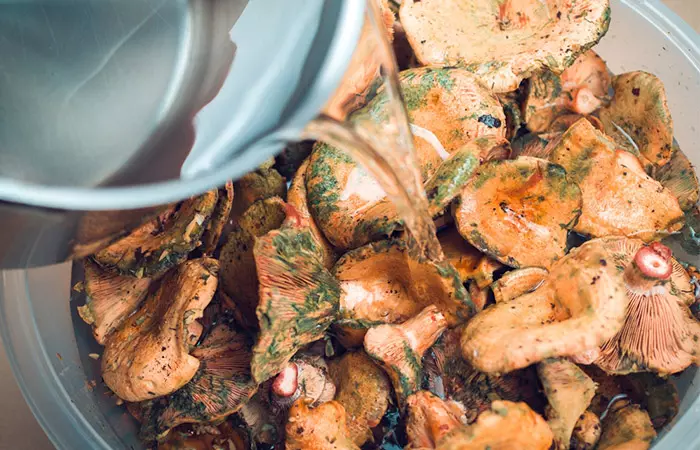
Turkey tail mushrooms can be added to your diet in various ways. One popular way of consuming it is by making tea. You will need the following ingredients:
- 1 teaspoon of dehydrated turkey mushroom
- 5 cups of water
- Sugar or honey for flavoring
The Process
- Boil 5 cups of water along with the dehydrated mushrooms. Continue boiling until it is reduced to half.
- Pour this liquid into a cup using a strainer.
- Add sugar or honey and enjoy your tea.
If dehydrated mushrooms are not available, you can use turkey tail mushroom powder instead. You can procure it from an online retailer or specialized organic stores.
You can also add this powder to your smoothies and milkshakes.
 Quick Tip
Quick TipBefore incorporating turkey tail mushrooms into your meals, it is helpful to understand the best ways to prepare them for optimal flavor and benefits. Scroll down to learn more.
How To Prepare Turkey Tail Mushrooms
Here are some simple ways of preparing turkey tail mushrooms for the best flavors:
- Look for plump, dry, and firm mushrooms. Avoid those with black patches or wrinkles.
- Avoid soaking them in water when cleaning them, as they absorb moisture and get soggy. Instead, remove grime with a gentle brush or a moist paper towel.
- Cut off the stems’ tips, particularly if they are rough or dry. You can chop, slice, or leave them whole, depending on the recipe.
Once your turkey tail mushrooms are clean with excess moisture removed, you can cook them in various ways. They can be grilled or roasted with seasonings, sautéed in butter or olive oil, stir-fried with vegetables or meats, or boiled in soups and sauces to add a deep umami taste.
Turkey tail mushrooms are mostly medicinal and very little is known about their culinary use. But do they also pose any side effects? Let us understand more in the next section.
Possible Side Effects Of Eating Turkey Tail Mushrooms

Turkey tail mushrooms are generally considered safe to consume. However, avoid them if you are generally allergic to mushrooms. Some of the other side effects include nauseai An uncomfortable feeling in the stomach which causes an urge to vomit but does not lead to vomiting. , heartburn, and diarrhea. Some people may also notice pigmentation of their fingernails (24).
Note: The insights provided in this article are not intended as medical advice. Hence, practice caution before consuming turkey tail mushrooms. If you have any pre-existing medical conditions, consult your doctor before adding turkey tail mushrooms to your diet. While there is no strong scientific evidence, they may interact with certain medications. For instance, if you are taking immune-suppressing drugs, turkey tail may prevent them from working effectively due to its immune-boosting properties. Also, consult your doctor if you are on blood thinners or medications for diabetes, as the mushroom may affect blood sugar levels or increase the risk of bleeding. Always check with your healthcare provider before adding any supplement to your routine, especially if you are on medication.
Infographic: Top 4 Health Benefits Of Turkey Tail Mushrooms
The turkey tail mushroom is named after its distinct appearance that mimics turkey tail plumage. It has a mild earthy flavor and is better favored for its many health benefits. In the infographic below, we have listed the most important benefits of this mushroom. Take a look.
Some thing wrong with infographic shortcode. please verify shortcode syntaxTurkey tail mushrooms are edible fungi with several medicinal properties. The presence of rich antioxidant compounds in Turkey tail mushrooms benefits your health in a number of ways. The intake of these mushrooms may boost immune health, improve the efficacy of cancer treatments, enhance gut health, treat HPV, and increase your athletic performance. There are many ways to include them in your diet. However, avoid eating them if you are allergic to mushrooms. They may also cause nauseai An uncomfortable feeling in the stomach which causes an urge to vomit but does not lead to vomiting. , diarrhea, and heartburn. Add them to your diet to reap their benefits but consult a doctor beforehand in case you have any pre-existing health conditions.
Frequently Asked Questions
Does Turkey tail mushroom help with weight loss?
It may help. Turkey tail mushrooms contain probiotics that may promote the growth of beneficial bacteria in your gut. Turkey tail mushroom benefits your digestion and improves leaky gut syndrome, which may also be helpful with weight loss. However, research is limited in this regard.
How long do the Turkey tail mushrooms take to work?
It may take six to eight hours to experience their effects and benefits.
Do Turkey tail mushrooms give you energy?
Yes. Turkey tail mushrooms can help improve energy levels by reprogramming energy metabolism (21).
Can you take Lion’s mane and Turkey tail mushrooms together?
Yes. Lion’s mane and Turkey tail mushrooms can be taken together.
Illustration: Benefits Of Turkey Tail Mushrooms And Possible Side Effects
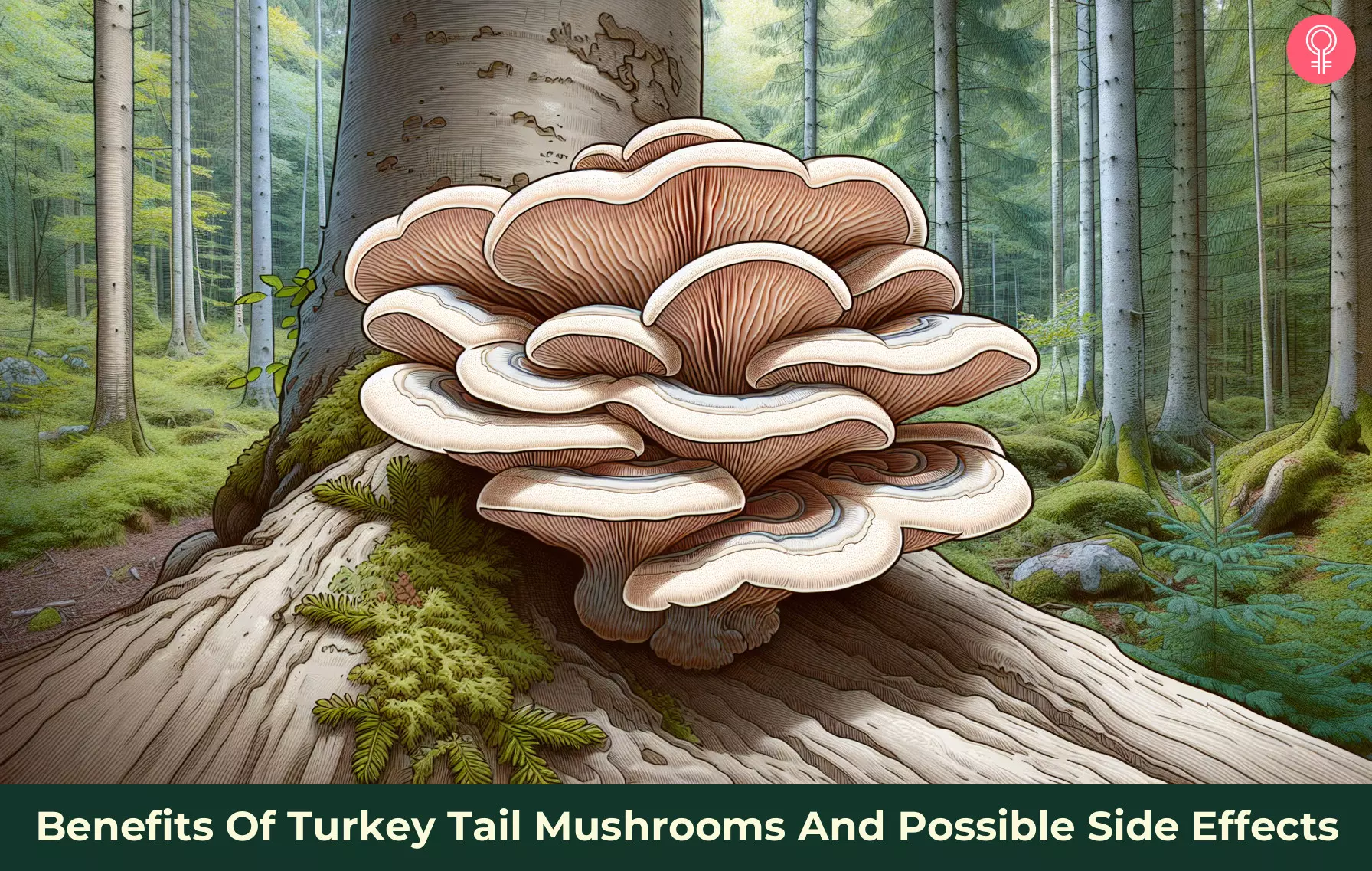
Image: Dall·E/StyleCraze Design Team
Discover the amazing health benefits of turkey tail mushrooms. Check out the video below to learn why you should include this delicious ingredient in your diet.
Personal Experience: Source
StyleCraze's articles are interwoven with authentic personal narratives that provide depth and resonance to our content. Below are the sources of the personal accounts referenced in this article.
i. Turkey tail mushroomhttps://medium.com/fitness-cycling-after-fifty/turkey-tail-mushroom-2045106146ea
References
Articles on StyleCraze are backed by verified information from peer-reviewed and academic research papers, reputed organizations, research institutions, and medical associations to ensure accuracy and relevance. Read our editorial policy to learn more.
- The Mycelium Of The Trametes Versicolor (Turkey Tail) Mushroom And Its Fermented Substrate Each Show Potent And Complementary Immune Activating Properties In Vitro
https://www.researchgate.net/publication/337699585_The_mycelium_of_the_Trametes_versicolor_Turkey_tail_mushroom_and_its_fermented_substrate_each_show_potent_and_complementary_immune_activating_properties_in_vitro - Flavonoids Inflammation and Immune System
https://www.ncbi.nlm.nih.gov/labs/pmc/articles/PMC5084045/ - Quercetin Inflammation and Immunity
https://www.ncbi.nlm.nih.gov/labs/pmc/articles/PMC4808895/ - Natural Antioxidants And Its Benefits
https://www.researchgate.net/publication/270593041_NATURAL_ANTIOXIDANTS_AND_ITS_BENEFITS - Medicinal Mushrooms As An Attractive New Source Of Natural Compounds For Future Cancer Therapy
https://www.ncbi.nlm.nih.gov/labs/pmc/articles/PMC6044372/ - Psp Activates Monocytes In Resting Human Peripheral Blood Mononuclear Cells: Immunomodulatory Implications For Cancer Treatment
https://pubmed.ncbi.nlm.nih.gov/23497877/ - Polysaccharide K Suppresses Angiogenesis In Colon Cancer Cells
https://www.ncbi.nlm.nih.gov/labs/pmc/articles/PMC3503532/ - Single Agent Polysaccharopeptide Delays Metastases and Improves Survival in Naturally Occurring Hemangiosarcoma
https://www.ncbi.nlm.nih.gov/labs/pmc/articles/PMC3440946/ - The Effect of Mushroom Beta-Glucans from Solid Culture of Ganoderma lucidum on Inhibition of the Primary Tumor Metastasis
https://www.ncbi.nlm.nih.gov/pmc/articles/PMC3995106/#:~:text=One%20of%20the%20special%20components,or%20parasitic%20infections%20%5B1%5D. - Efficacy of Yun Zhi (Coriolus versicolor) on survival in cancer patients: systematic review and meta-analysis
https://pubmed.ncbi.nlm.nih.gov/22185453/ - Efficacy of adjuvant immunochemotherapy with polysaccharide K for patients with curative resections of gastric cancer
https://pubmed.ncbi.nlm.nih.gov/17106715/ - Phase 1 Clinical Trial of Trametes versicolor in Women with Breast Cancer
https://www.ncbi.nlm.nih.gov/labs/pmc/articles/PMC3369477/ - Efficacy Of Adjuvant Immunochemotherapy With Polysaccharide K For Patients With Curative Resections Of Gastric Cancer
https://pubmed.ncbi.nlm.nih.gov/17106715/
- Effects Of Polysaccharopeptide From Trametes Versicolor And Amoxicillin On The Gut Microbiome Of Healthy Volunteers: A Randomized Clinical Trial
https://pubmed.ncbi.nlm.nih.gov/25006989/ - Trametes Versicolor Extract Modifies Human Fecal Microbiota Composition In Vitro
https://www.researchgate.net/profile/David-Newburg/publication/235717058_Trametes_versicolor_Extract_Modifies_Human_Fecal_Microbiota_Composition_In_vitro/links/54c2a9550cf256ed5a8f337f/Trametes-versicolor-Extract-Modifies-Human-Fecal-Microbiota-Composition-In-vitro.pdf - Efficacy of a Coriolus versicolor-Based Vaginal Gel in Women With Human Papillomavirus-Dependent Cervical Lesions: The PALOMA Study
https://pubmed.ncbi.nlm.nih.gov/33746195/ - Control Of Oral Human Papillomavirus (HPV) By Medicinal Mushrooms Trametes Versicolor And Ganoderma Lucidum: A Preliminary Clinical Trial
https://pubmed.ncbi.nlm.nih.gov/25271984/ - Effect of Coriolus versicolor Mycelia Extract on Exercise Performance and Physical Fatigue in Mice
https://www.ncbi.nlm.nih.gov/labs/pmc/articles/PMC5666542/ - Extracellular and Intracellular Polysaccharide Extracts of Trametes versicolor Improve Lipid Profiles Via Serum Regulation of Lipid-Regulating Enzymes in Hyperlipidemic Mice
https://pubmed.ncbi.nlm.nih.gov/32780205/ - Extract from the Coriolus versicolor Fungus as an Anti-Inflammatory Agent with Cytotoxic Properties against Endothelial Cells and Breast Cancer Cells
https://www.ncbi.nlm.nih.gov/pmc/articles/PMC7731170/ - Research Progress on the Extraction, Structure, and Bioactivities of Polysaccharides from Coriolus versicolor
https://www.ncbi.nlm.nih.gov/pmc/articles/PMC9316838/ - Turkey tail mushroom (Trametes versicolor): an edible macrofungi with immense medicinal properties
https://www.sciencedirect.com/science/article/pii/S2214799324000699 - Medicinal Mushrooms (PDQ®)–Health Professional Version
https://www.cancer.gov/about-cancer/treatment/cam/hp/mushrooms-pdq - A Turkey Tails Polysaccharide as an Immunochemotherapy Agent in Cancer
https://www.researchgate.net/publication/244889954_A_Turkey_Tails_Polysaccharide_as_an_Immunochemotherapy_Agent_in_Cancer
Read full bio of Reda Elmardi
Read full bio of Varsha Patnaik
Read full bio of Ravi Teja Tadimalla
Read full bio of Payal Karnik






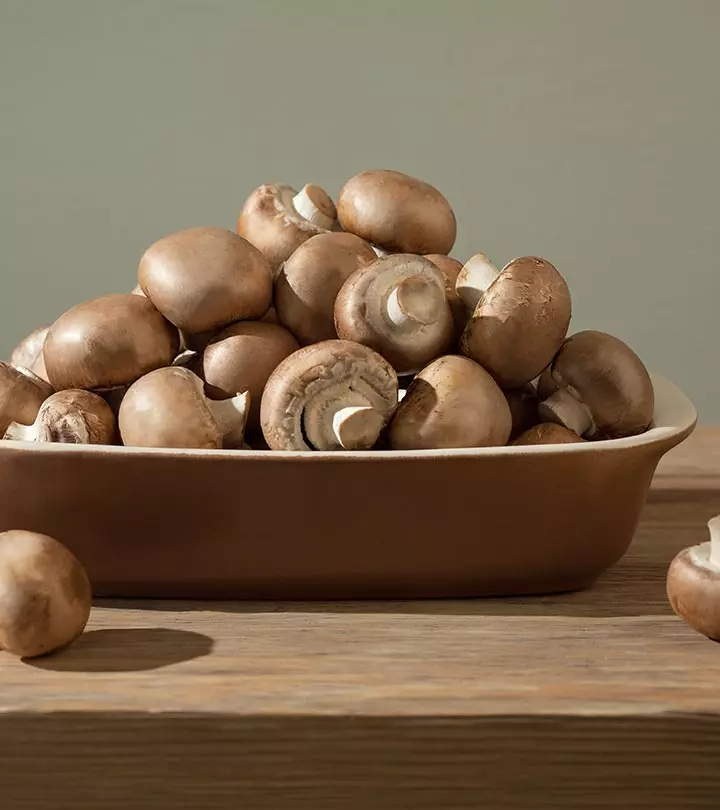
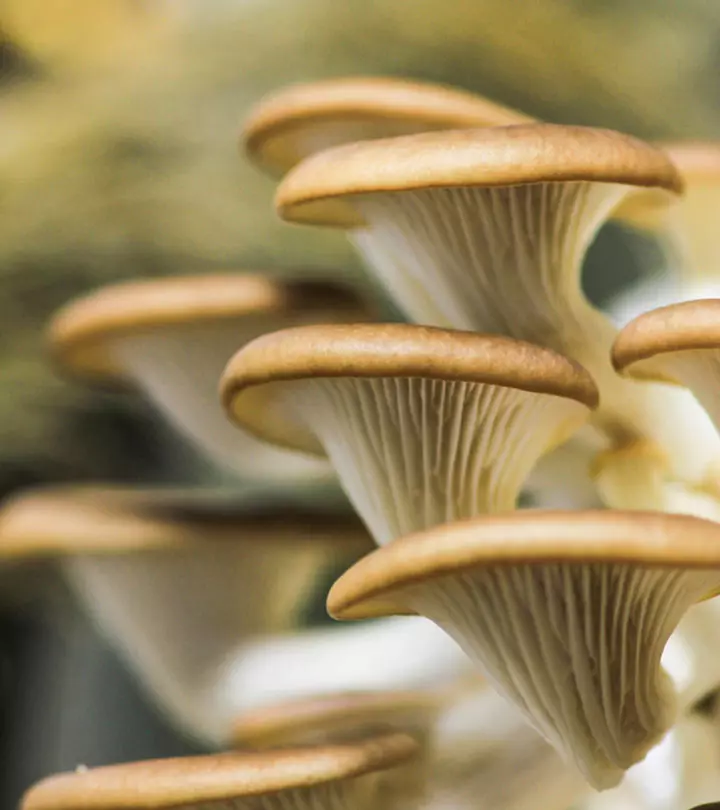
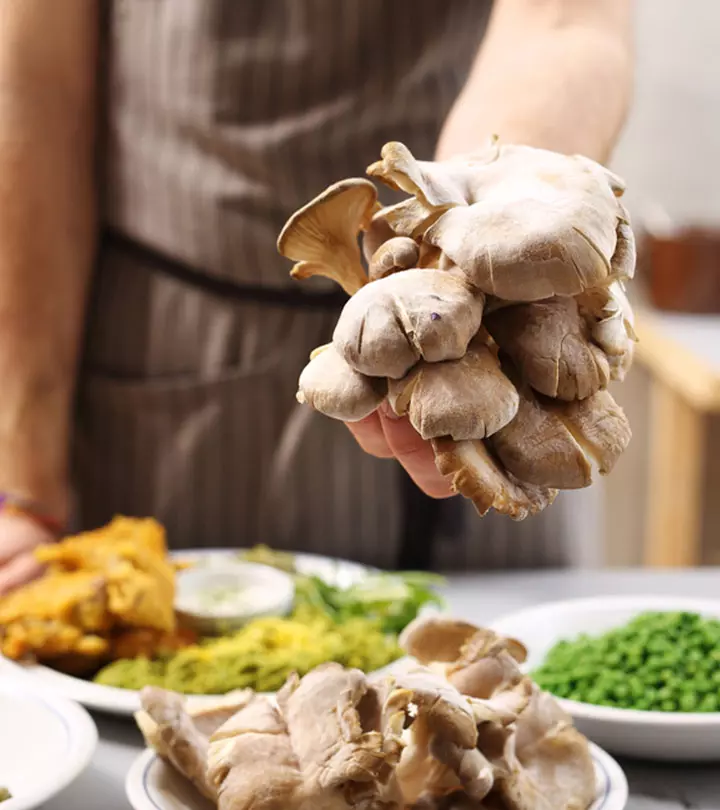
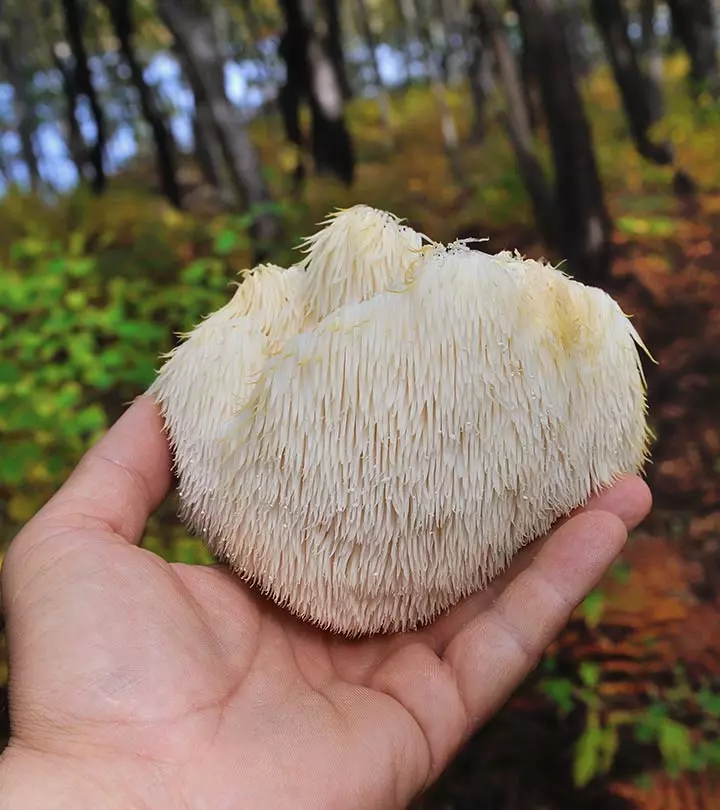
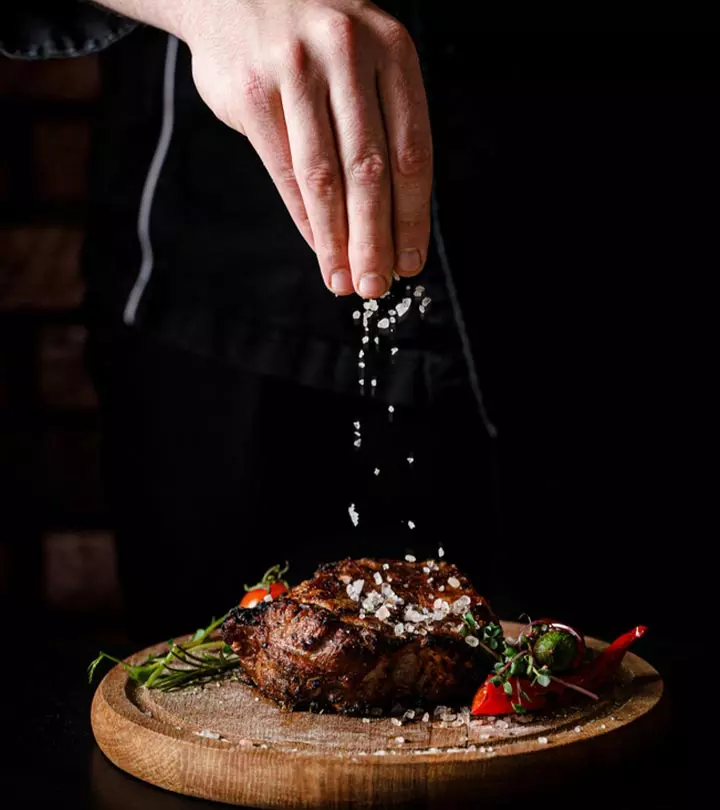
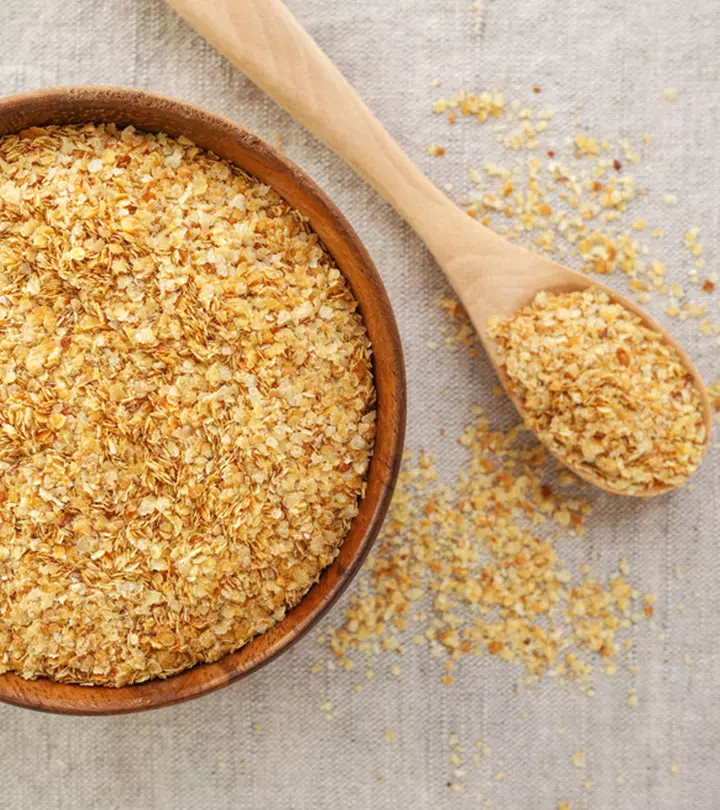
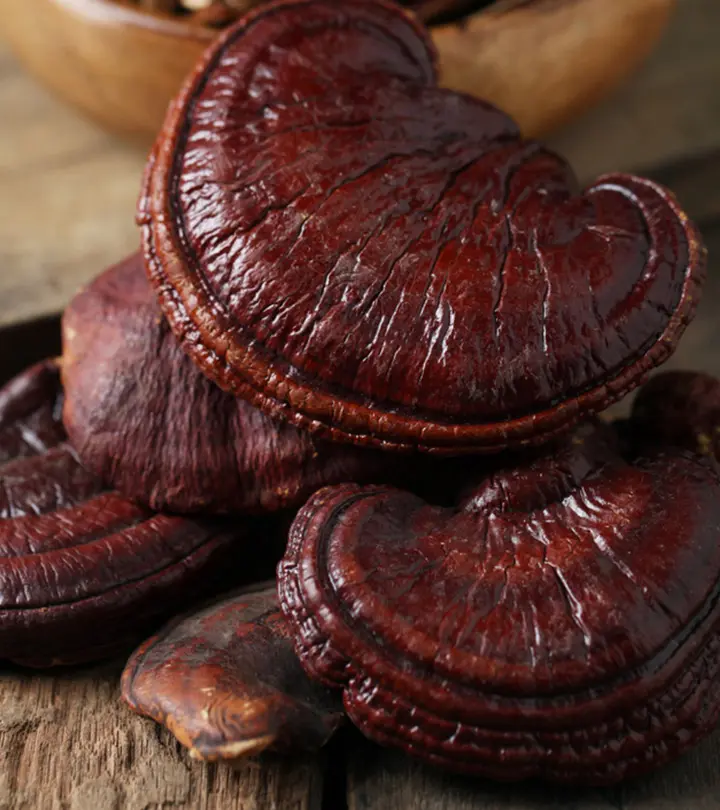
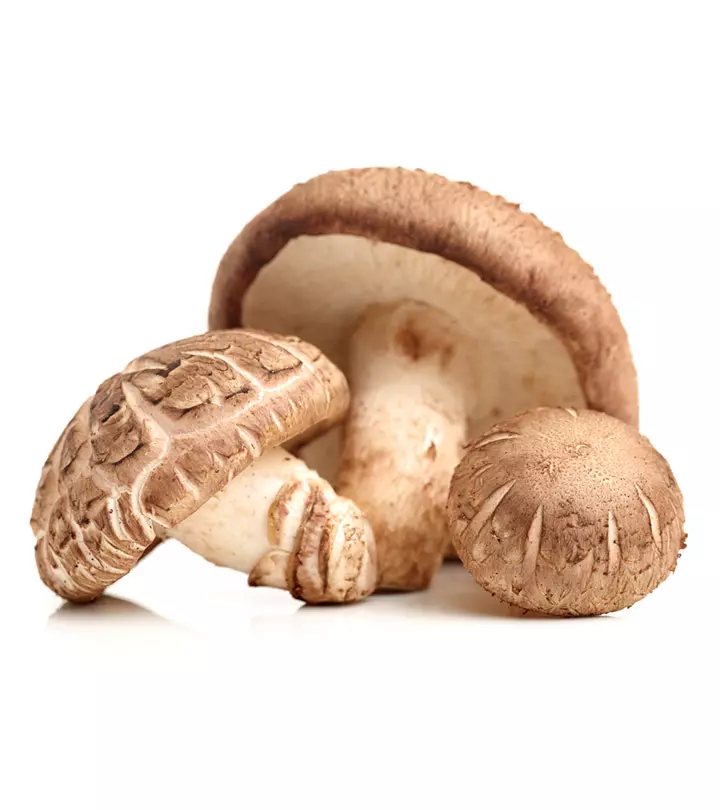

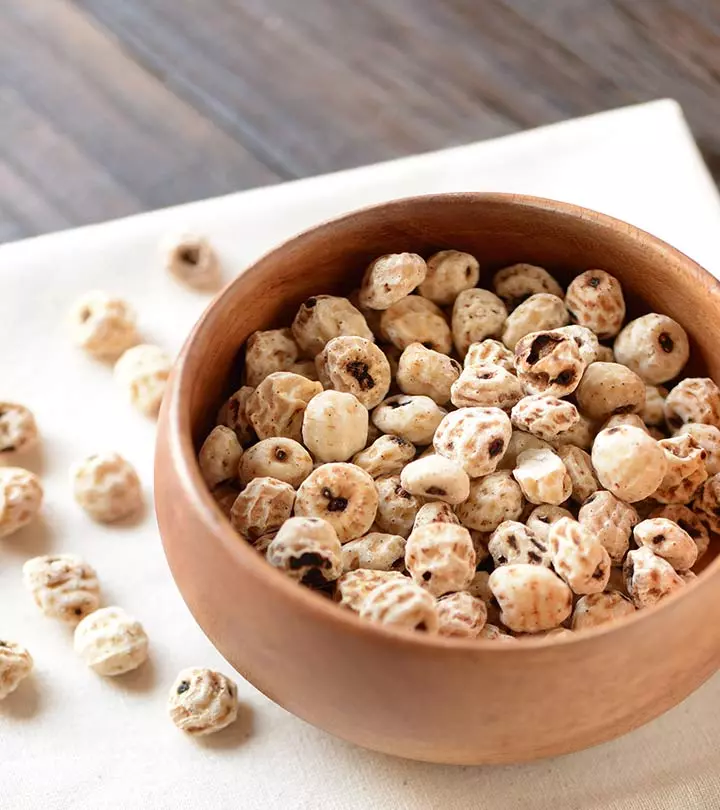
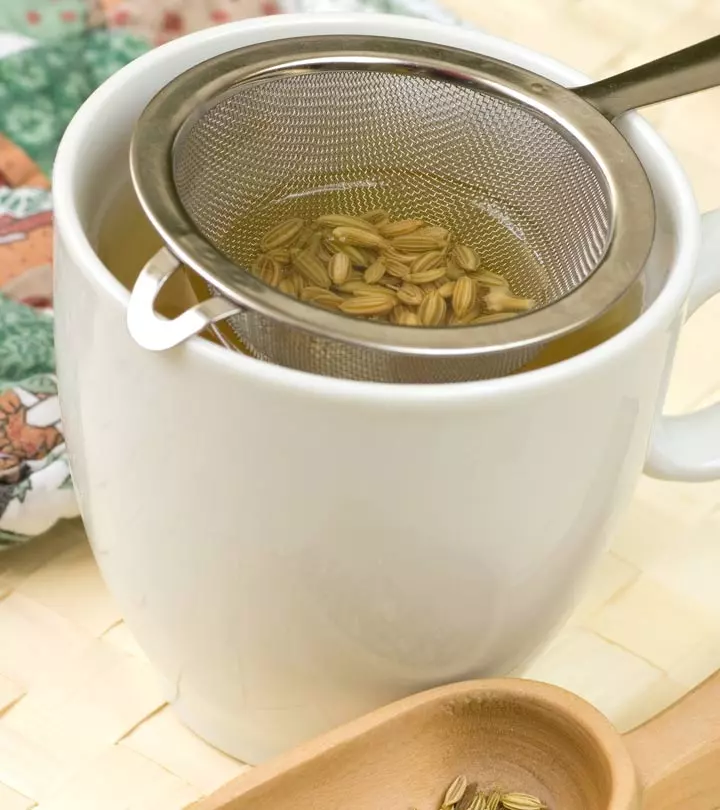

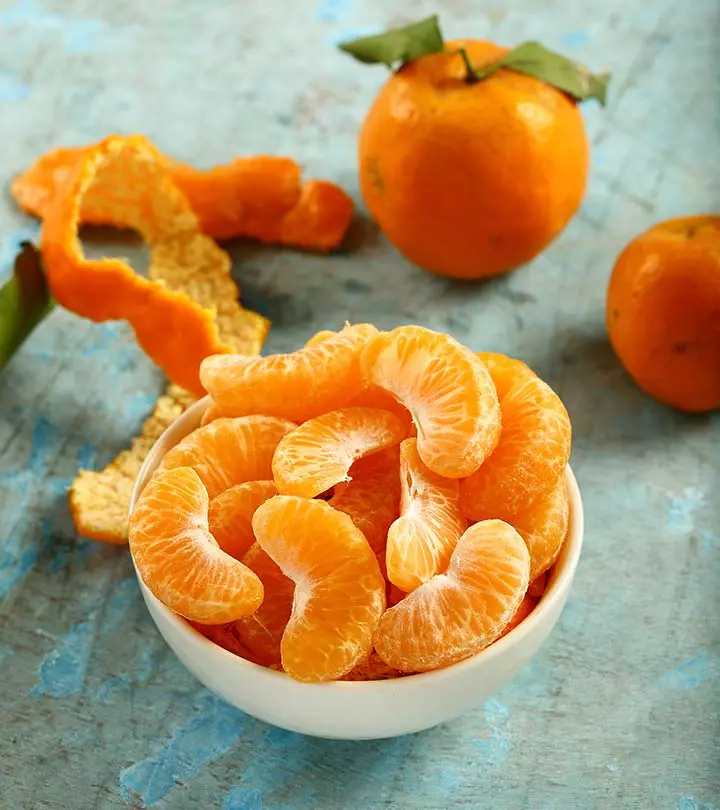



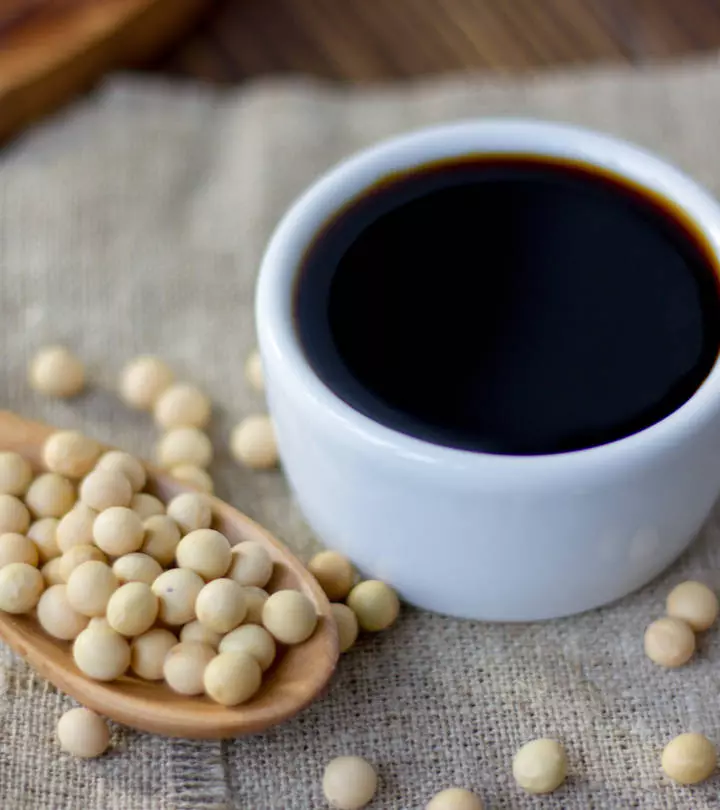
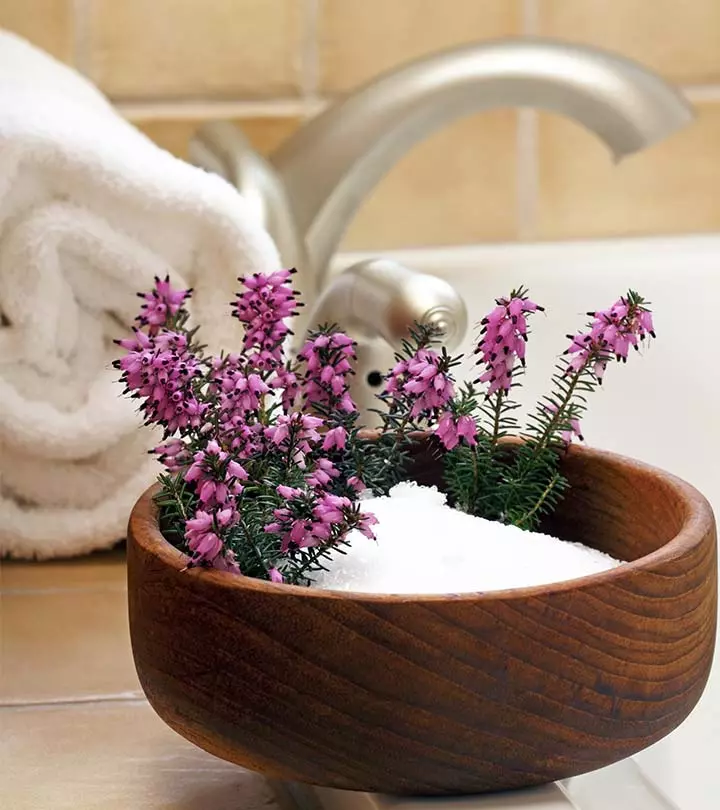
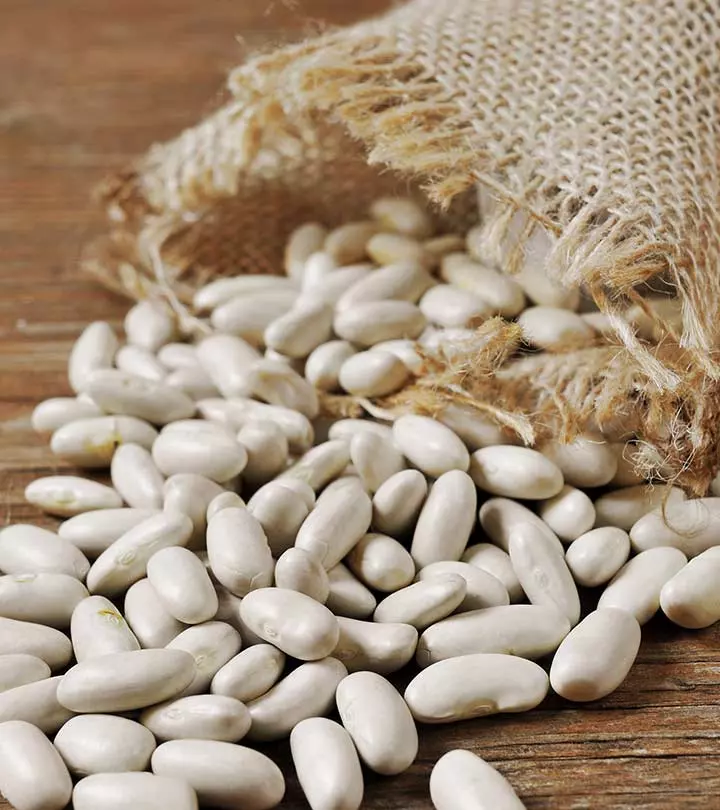
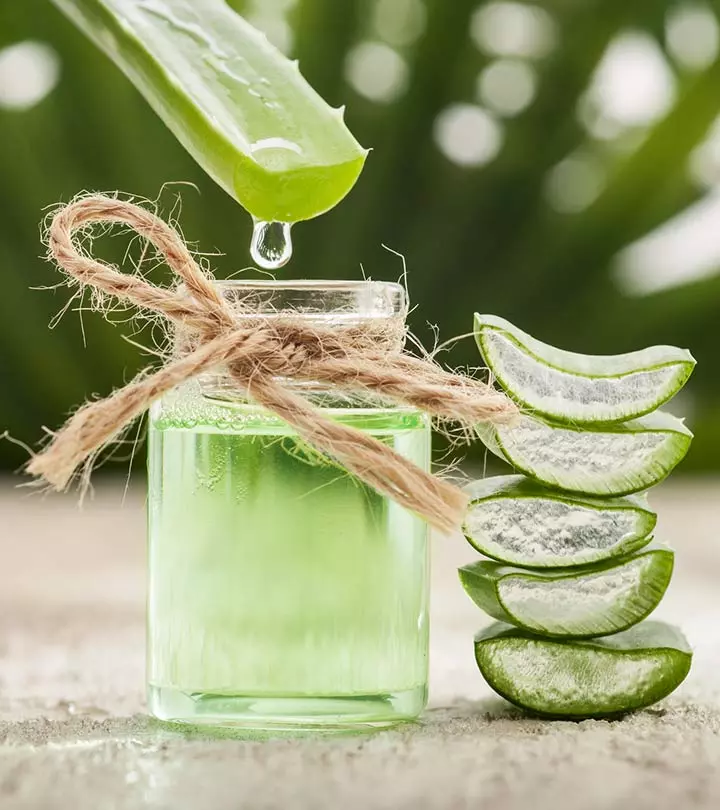
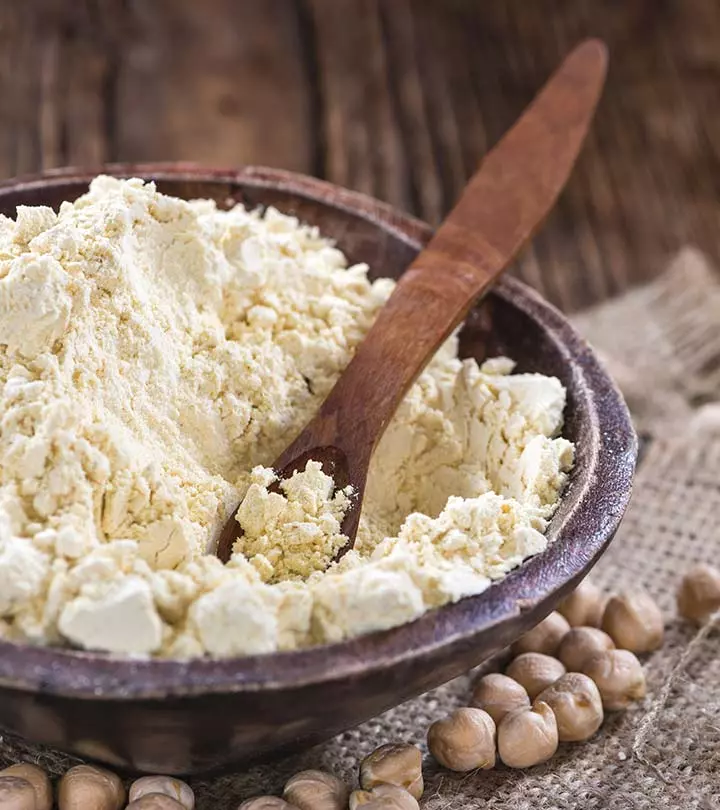
Community Experiences
Join the conversation and become a part of our empowering community! Share your stories, experiences, and insights to connect with other beauty, lifestyle, and health enthusiasts.